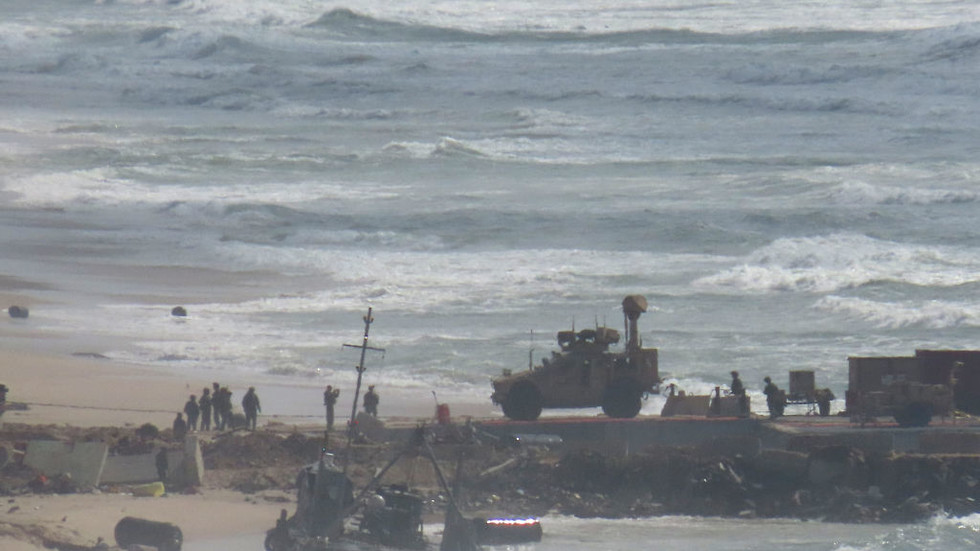The world needs to fear the increased tensions between these two nuclear-armed neighbours with decades of hostility.
It had been building up to a confrontation, the anger was just too much to be contained.
India says its missile strikes were in response to the brutal murder of people enjoying their holidays in an off-road meadow near Pahalgam, known as mini-Switzerland, in Kashmir - when militants opened fire killing 26 and injuring dozens on 22 April.
India accused Pakistan of harbouring, arming and sheltering militant organisations whose cadres infiltrate the almost 500-mile border in Kashmir and attack the state.
Pakistan denies the accusation and says it only supports the right of self-determination of Kashmiris.
But this time it was different, tourists that were largely spared by militants earlier on were now the target.
And only men were killed - in some cases executed in front of their families.
Significantly the retaliation India has conducted was called "Operation Sindoor".


Sindoor is the vermillion, red colour a married woman wears in the middle parting of their hairline, indicating martial status. In the attack on the tourists near Pahalgam there were many who were widowed.
A few days after the killings, Indian Prime Minister Narendra Modi said: "I say to the whole world India will identify, track and punish every terrorist and their backers.
"We will pursue them to the ends of the Earth. India's spirit will never be broken by terrorism. Terrorism will not go unpunished. Every effort will be made to ensure that justice is done."
India escalated the diplomatic offensive revoking visas, expelling military advisers and putting on hold the crucial water-sharing treaty known as the Indus Water Treaty.
Pakistan retaliated, Prime Minister Shehbaz Sharif chaired a meeting of the National Security Committee and passed reciprocal measures and held that the suspension of the water treaty would be considered an act of war.
The tensions between two nuclear-armed neighbours with decades of hostility and mistrust are at their worst. India and Pakistan have fought several wars and skirmishes since their independence from Britain in 1947.
Read more:
The story of India and Pakistan's deadly conflict

In 2019 the two countries were on the brink. An attack by a suicide bomber on a military convoy killed at least 40 Indian paramilitary soldiers.
India blamed Pakistan for giving shelter to Islamist terrorists and conducted limited airstrike across the border. A tense standoff between two nuclear armed countries has lasted since.
Around a decade earlier, the Kargil War in May 1999 led to a standoff often described as a nuclear flash point.
Pakistani military covertly had occupied Indian posts across the line of control (LoC) - the de facto border between the Indian and Pakistani-controlled parts of Kashmir.
The war broke out and Pakistan sought the help of American President Bill Clinton in de-escalating the conflict.

Please use Chrome browser for a more accessible video player
The Washington Accord was agreed by then-Pakistan Prime Minister Nawaz Sharif who agreed to withdraw Pakistani troops and to restore the sanctity of the LoC.
The United Jihad Council, an umbrella of extremist groups, rejected the accord and decided to continue fighting the Indian state.
The Mumbai terror attack of 2008 was the hallmark of this idea.
166 people were killed by ten terrorists belonging to Lashkar-e-Taiba (LeT), which is alleged to have close ties to Pakistan spy agency the Inter-Services Intelligence (ISI).
The killings went on for four days at iconic places in Mumbai. A lone gunman Ajmal Kasab was caught and before his execution in 2012 claimed that the attackers were members of the terrorist group.
There is major trust deficit between the two countries.

India claims it has provided enough evidence of terror groups operating from Pakistan and attacking the state and its people.
Pakistan denies this and says it is the victim of terror.
Kashmir is the crown over which the two nuclear-armed neighbours have fought wars and are in a perpetual state of tension.
For decades Kashmir has been caught up in a vortex of violence, conflict, killings and kidnappings. The insurgency movement of the late 80s carried out for decades against the Indian state has been enabled.
Pakistan says Kashmir remains an unresolved dispute and they will continue to support the right of self-determination of people.
The mistrust between the two countries has grown over the years and there is little diplomatic manoeuvring to bridge this gap.
The latest incident could soon develop into a flashpoint and the world needs to be scared of what the consequences might be.

 22 hours ago
4
22 hours ago
4










 English (US) ·
English (US) ·